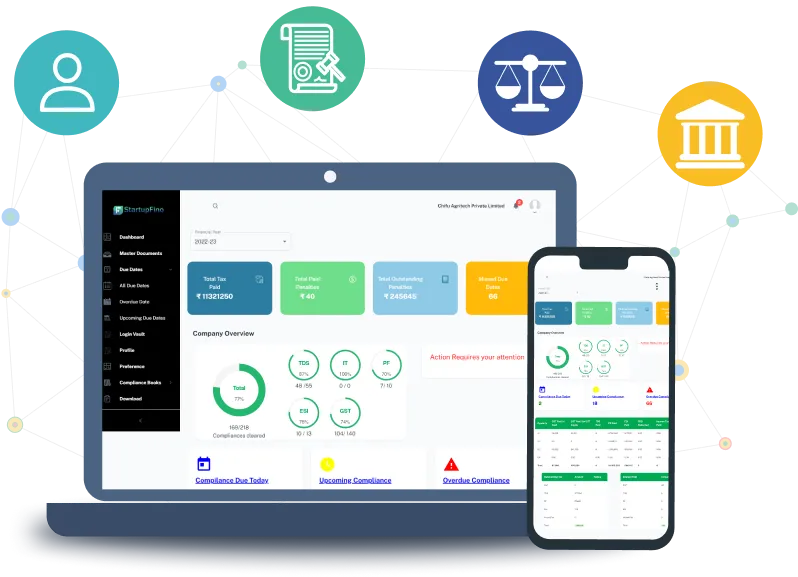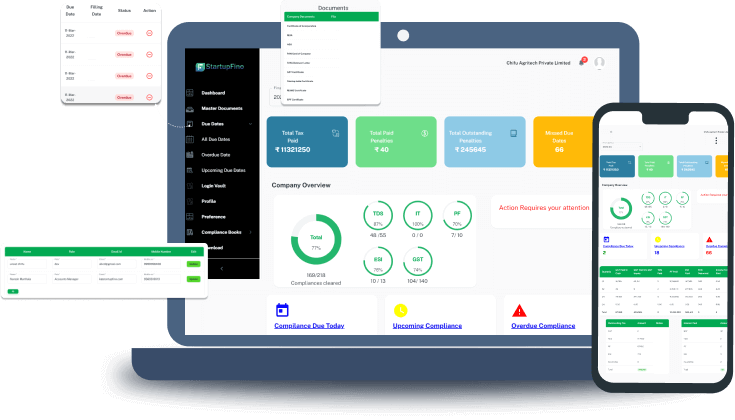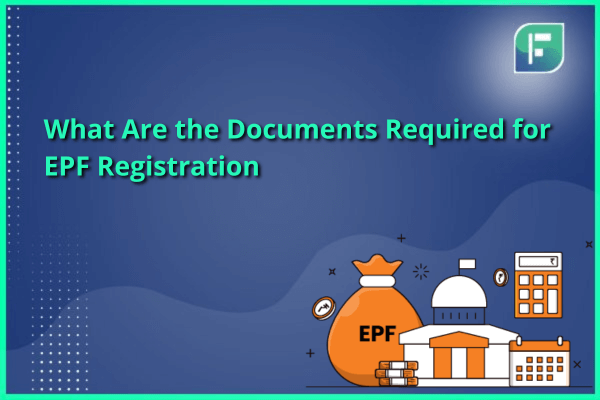Labour Welfare Funds constitute financial resources administered by Labour Welfare Boards, under the Ministry of Labour in individual states. These funds are very important instruments in providing financial backing for a range of initiatives dedicated to enhancing the welfare of employees. The principal goal of LWF Registration is to enhance working conditions and elevate the standards of living for workers. Contributions to the Labour Welfare Fund are sourced from employers, employees, and, in certain cases, the government, collectively promoting a comprehensive approach to the well-being of the workforce.
State Wise Applicability & Contribution Rate of LWF
The table given below outlines the applicability of Labour Welfare Fund specifically in relation to Commercial Establishments.
Note: For Factories, Transporters, Bus Service Providers, Plantations, Workshops, please refer to the provisions of the applicable LWF Act.
|
State
|
Employee Threshold
|
Monthly Salary Threshold for Coverage
|
Employer Contribution
|
Employee Contribution
|
Frequency
|
Deduction Date
|
Return Date
|
|
Andhra Pradesh
|
1
|
All Employees
|
Rs. 30
|
Rs. 70
|
Yearly
|
31 December
|
31 January
|
|
Chandigarh
|
1
|
Less Than Rs. 15,000/-
|
Rs. 5
|
Rs. 20
|
Monthly
|
Last Day of Month
|
15 October & 15 April
|
|
Chhattisgarh
|
1
|
More Than Rs. 10,000/-
|
Rs. 15
|
Rs. 45
|
Half Yearly
|
30 June & 31 December
|
15 July & 15 January
|
|
Delhi
|
5
|
More Than Rs. 2,500/-
|
Rs. 0.75
|
Rs. 2.25
|
Half Yearly
|
30 June & 31 December
|
15 July & 15 January
|
|
Goa
|
1
|
More Than Rs. 1,600/-
|
Rs. 60
|
Rs. 180
|
Half Yearly
|
30 June & 31 December
|
15 July & 15 January
|
|
Gujarat
|
10
|
More Than Rs. 3,500/-
|
Rs. 6
|
Rs. 12
|
Half Yearly
|
30 June & 31 December
|
15 July & 15 January
|
|
Haryana
|
10
|
All Employees
|
Rs. 24
|
Rs. 50
|
Monthly
|
Last Day of Month
|
Last Day of Month
|
|
Karnataka
|
50
|
All Employees
|
Rs. 20
|
Rs. 40
|
Yearly
|
31 December
|
15 January
|
|
Kerala
|
1
|
All Employees
|
Rs. 45
|
Rs. 45
|
Rs. 45
|
30 June & 31 December
|
15 July & 15 January
|
|
Madhya Pradesh
|
1
|
More Than Rs. 10,000/-
|
Rs. 10
|
Rs. 30
|
Half Yearly
|
30 June & 31 December
|
15 July & 15 January
|
|
Maharashtra
|
5
|
More Than Rs. 3,000/-*
|
Rs. 12
|
Rs. 36
|
Half Yearly
|
30 June & 31 December
|
15 July & 15 January
|
|
Odisha
|
20
|
All Employees
|
Rs. 10
|
Rs. 20
|
Half Yearly
|
30 June & 31 December
|
15 July & 15 January
|
|
Punjab
|
20
|
All Employees
|
Rs. 5
|
Rs. 20
|
Monthly
|
Last Day of Month
|
15 April & 15 October
|
|
Tamil Nadu
|
5
|
More Than Rs. 15,000/-
|
Rs. 20
|
Rs. 40
|
Yearly
|
31 December
|
31 January
|
|
Telangana
|
20
|
More Than Rs. 1,600/-
|
Rs. 2
|
Rs. 5
|
Yearly
|
31 December
|
31 January
|
|
West Bengal
|
10
|
More Than Rs. 1,600/-
|
Rs. 3
|
Rs. 15
|
Half Yearly
|
30 June & 31 December
|
15 July & 15 January
|
What is the Labour Welfare Fund?
The Labour Welfare Fund is a compulsory financial contribution imposed on employers within specific industries, aiming to support the well-being of their workforce.
The regulations pertaining to the Labour Welfare Fund are outlined in state-specific Labour Welfare Fund Acts and Rules. Essentially, the Labour Welfare Fund is a governmental social security initiative designed to safeguard the interests of workers, ensuring their welfare extends beyond the professional sphere into their personal lives.
Understanding Labour Welfare Fund Registration
Labour Welfare Fund Registration is an important process for employers to contribute to the welfare of their employees. The registration is mandated under the provisions of the applicable Labour Welfare Fund Act. To understand the applicability of this registration, it's essential to know its eligibility criteria.
Eligibility for Labour Welfare Fund Registration
The eligibility for Labour Welfare Fund Registration is based on two primary factors: the state and the industry to which the employer belongs.
State-Based Eligibility
Labour Welfare Fund is not universally applicable across all states and union territories of India. Only 16 states and union territories have adopted and enacted the Labour Welfare Fund Act, making registration applicable exclusively in these regions. The list of applicable states includes:
- Andhra Pradesh
- Chhattisgarh
- Goa
- Chandigarh
- Delhi
- Gujarat
- Haryana
- Karnataka
- Kerala
- Madhya Pradesh
- Maharashtra
- Odisha
- Punjab
- Tamil Nadu
- Telangana
- West Bengal
Industry-Based Eligibility
Even within states where the Labour Welfare Fund is applicable, eligibility depends on the industry or establishment to which the employer belongs. For example, in Kerala, the fund applies to factories, plantations (tea, rubber, coffee, cardamom, oil palm, or cocoa) with 10 or more employees, motor transport agencies, and commercial establishments with 5 or more employees. In West Bengal, the fund applies to factories and motor transport agencies, but not plantations. Also, it applies to commercial establishments with 10 or more employees in West Bengal, as opposed to 5 or more employees in Kerala.
Benefits of Labour Welfare Fund Registration in India
Given below are the benefits of labour welfare fund registration:
1. Improved Working Conditions
Labour welfare fund registration contributes to enhanced working conditions, promoting better facilities, safer environments, and increased job security for employees.
2. Employee Retention
Registration with the labour welfare fund aids in employee retention by providing benefits such as healthcare and insurance. These offerings make employees feel valued, promoting loyalty to the organisation.
3. Compliance with Legal Requirements
Employers ensure compliance with state legal requirements by registering with the labour welfare fund. This proactive step helps avoid legal issues and potential penalties in the future.
4. Better Employer-Employee Relations
Labour welfare fund registration promotes positive employer-employee relationships, leading to an improved work environment, heightened job satisfaction, and increased overall productivity.
5. Improved Employee Morale
Providing benefits like healthcare and education through labour welfare fund initiatives boosts employee morale, creating a more positive workplace environment and subsequently enhancing employee productivity.
6. Tax Benefits
Employers registering with the labour welfare fund can avail tax benefits under the Income Tax Act. This includes a deduction of up to 1.5% of the total income dedicated to welfare activities for employees. This financial incentive encourages organisations to prioritise the well-being of their workforce.
Documents Required for Labour Welfare Fund Registration
Labour Welfare Fund Registration requires the submission of various documents, and while the specifics may vary across states, certain fundamental documents are universally required. These documents can be categorised into three main groups:
- Documents of the Employer:
- PAN card of the Employer
- Aadhar card of the Employer
- Contact details of the Employer (mobile number & email ID) for OTP-based verification.
- Documents of the Employee:
- List of employees with their names and official information
- Salary register of employees
- Copies of Aadhar cards of employees.
- Documents of the Establishment:
- Business PAN card
- Certification of Incorporation
- Constitution document
- Address proof of registered premises (latest electricity bill / telephone bill / Rent Agreement / Bank Passbook)
- Bank details (cancelled cheque)
- PF number
- ESI number
- Shops & Establishment Registration number
- MSME Registration number.
It is advisable to refer to the specific LWF Rules applicable to your state for an exhaustive list of documents required or seek guidance from our advisors at StartupFino for expert assistance in this process.
Procedure for LWF Registration in India
Given below is the procedure for registration under labour welfare fund in India:
STEP 1 – Collect and Organise Required Documents
Initiate the Labour Welfare Fund registration process by gathering essential documents. This includes the PAN card of the establishment, address proof, Shops and Establishment Act registration certificate, employee list, salary register, bank account details, and any other documents mandated by relevant authorities. Refer to the Labour welfare fund registration rules in your state for a comprehensive list of required documents.
STEP 2 – Create an Online Account
Register on the official website of the State’s Labour Department by providing establishment details such as name, registered address, mobile number, and email ID. Upon registration, login credentials will be sent via email or SMS. Use these credentials to log in, creating a complete account profile for future use.
STEP 3 – Fill in the Application Form
Access and complete the Labour welfare fund registration application form on the website. The form may vary by state, requiring details such as establishment name, type, and employee list. Ensure accurate and updated information to prevent legal issues.
STEP 4 – Upload Required Documents
After completing the application form, upload all necessary supporting documents in digital form. Ensure clarity, legibility, and correct formats to facilitate smooth verification by authorities.
STEP 5 – Submit the Application
Pay the prescribed government fees and submit the form on the website. Upon submission, receive an acknowledgment receipt with a unique reference number for tracking application status. Note that government fees may vary between states.
STEP 6 – LWF Registration Granted
The Labour Department will verify the application and documents. Upon approval, the department will issue a Labour welfare fund registration Certificate, granting registration to the employer. The certificate confirms the successful completion of the registration process.
Why Choose StartupFino for LWF Registration?
StartupFino is a company that specialises in offering complete LWF registration services. We can help you with everything from providing advice in the initial phase to ensuring that you meet all the necessary requirements and compliances post LWF registration.
At StartupFino, we specialise in facilitating the entire process of acquiring essential registrations, managing payments, and ensuring compliance with the necessary regulations related to Labour Welfare Funds in India. Our comprehensive services are designed to simplify the administrative aspects, allowing businesses to meet their obligations and contribute to the welfare of their workforce effectively.







